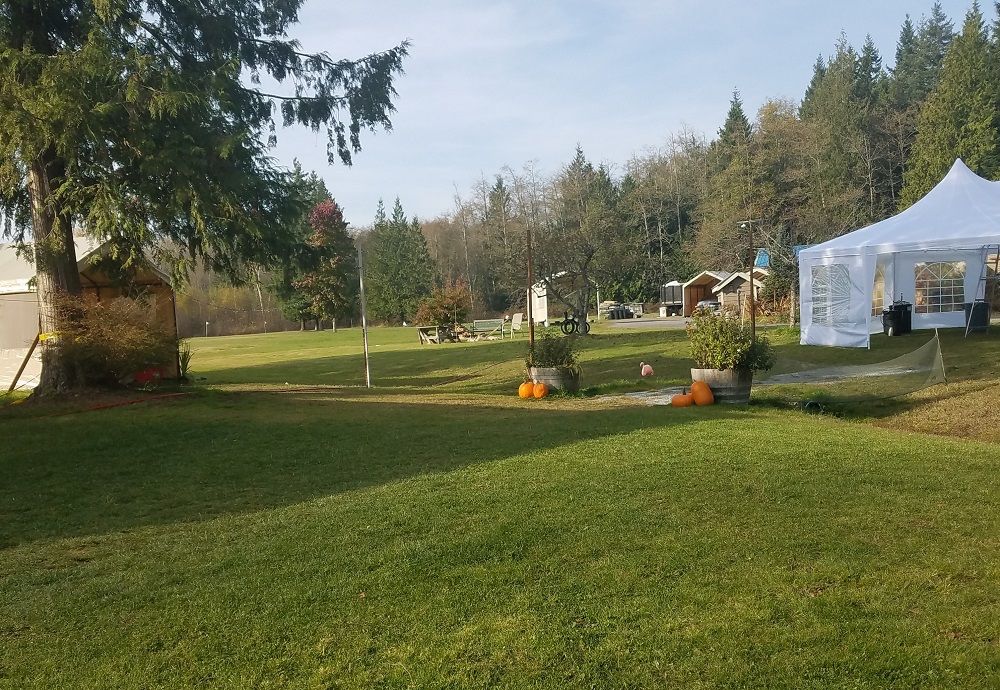
04 Apr Vertical Integration
Legalization of cannabis can cause one to conjure up all sorts of cool ideas. I’ve heard of a couple who built fancy treehouses that are a pot-smoke-friendly alternative to hotels. I’ve tasted really awful tinctures meant to aid sleep. I’ve seen sticky personal lubricants that promise enhanced desire but seem like a hoax. We’ve heard of ideas about consumption lounges where one can do their laundry or play backgammon between bong rips. We have seen the development of cute little blow torches for the on-the-go dabbers.
One cool idea that will not go away is the idea of visiting a farm for the purpose of on-site purchases, much like visiting a winery. When we bought our 10-acre property an hour north of Seattle, the thought of on-site tours, tastings and sales appealed to me. We have plenty of room for picnic tables, parking and even a concert stage. Having the ability to host guests, share the wonders of the garden and send them home with a fat sack would be really cool.
But the reality is that scenario is unlikely in Washington without massive disruptions, because of the state’s low barrier to entry, prohibition of vertical integration and ban on out-of-state ownership of licenses.
Washington’s $250 application fee brought in hundreds of boot-strapped companies, while hundreds more have much bigger boots and could more readily afford the expense of building out impressive tasting rooms that meet strict building and public fire safety codes. If on-site sales were allowed, we would be forced to keep up with the competition, costing us money we do not wish to spend. We would, again, have to tussle with local zoning for the activity. It would threaten our relationships with our retail stores. It would cause us to completely change our business plan. It would disrupt the market as cutting out the retailer would encourage most to lower prices even further. The further race to the bottom, I fear, would be too much for us to compete against.
The law that separates growers from retailers has, by default, pushed Washington cannabis to be the most well-branded, superior cannabis in the world. There is fierce competition to stand out in the packed crowd and that has been to our benefit. Washington’s retail stores currently offer more variety of unique products than any other state. If growers were allowed to retail their own products, what is keeping stores from wanting their own grows? Vertical integration would crush those of us that do not have deep enough pockets to keep up with such a disruptive change.
Speaking of deep pockets, the investor class that is snapping up licenses all over the world has been kept at bay in Washington because they cannot own a piece of our pie. It has been the single biggest thing that has fostered our state to remain craft-centric. The law was intentionally written to bring small, independent cannabis entrepreneurs into the legal system, and I believe that needs protected. We are all limited to which side of the fence we wish to participate on and how many licenses we can own. So many of us have given everything we’ve got to remain relevant in the market. Drastically changing that market with direct sales from the farm would open a Pandora’s box of vertical integration that would actually threaten the unique craft nature of our market.
The topic of destination tours to farms with on-site tastings and sales is not going away. I believe there are solutions to make it beneficial to all licensees and we need to proceed slowly and thoughtfully to honor all who have worked so darned hard to create viable companies that are independent from each other.
I’ve got a few cool ideas about how to achieve that.
Read more articles by Shawn DeNae at https://www.marijuanaventure.


